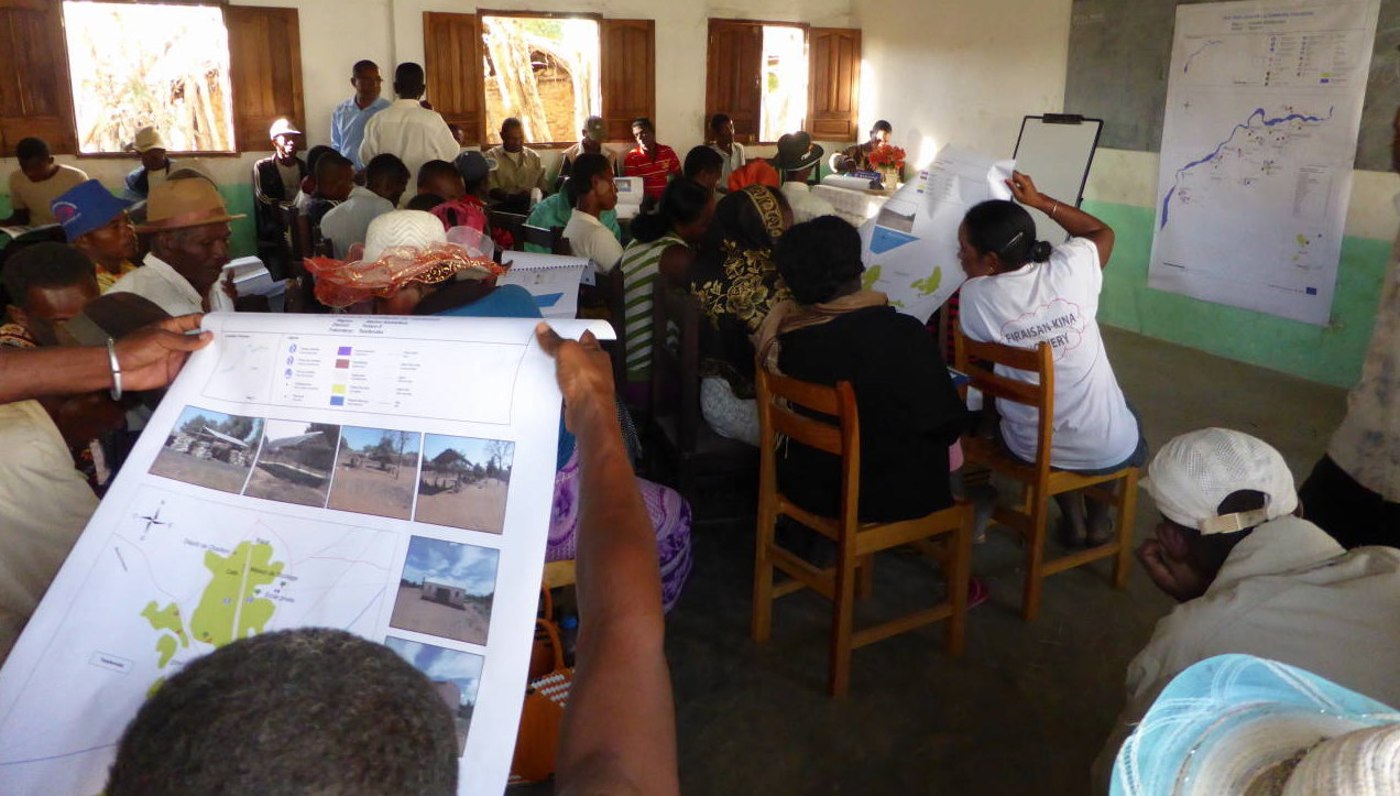
Project reference
13-0022-000-MDG-AppuiANE
Contract duration
2013 - 2018
Budget
2,933,602
Programme budget managed: 4.984.945 EURO
Countries
Madagascar
Keywords
Civil society, Governance
Technical assistance to the Programme to Support Madagascar’s Civil Society (DINIKA)
The overall objective of this programme was to support Madagascar’s Civil Society and promote good governance at local and national level, working towards more independence and the increased credibility of the NSAs.
This action primarily aimed to broaden the spectrum of European Aid beneficiaries amongst the Malagasy NSAs, in particular promoting the support of emerging actors in the rural world and in urban centres:
A focus was put on very small initiatives, mainly managed by women.
This action primarily aimed to broaden the spectrum of European Aid beneficiaries amongst the Malagasy NSAs, in particular promoting the support of emerging actors in the rural world and in urban centres:
- Particular attention was paid to youth and women’s associations. Targeted capacity-building activities, local support by operators selected through service contracts, and study trips in the region were carried out. Moreover, small subsidies were granted to a limited number of initiatives to enable them to structure themselves and to increase their participation in economic and social spheres;
- Furthermore, transparency, accountability and the decision-making process of the NSAs were taken into account in the programme to the greatest extent possible, with a view to strengthening their credibility with citizens, and towards the government, local authorities and financial and technical partners. Governance initiatives in key sectors at communal and intercommunal level, were financed and accompanied; the concept of learning by doing and coaching was applied throughout the process;
- The programme also worked towards increasing public participation in eligible areas in political, social and economic spheres. To this end, the Programme to Support Madagascar’s Civil Society is financing NSA projects (priority being placed on level 4 NSAs) involved in the sensitisation and civic education of citizens, to increase their participation in politics (local and national level); moreover, the programme had to facilitate a multi-actor dialogue on the role of civil society in promoting a more conducive environment for NSAs working in this domain;
- Promotion of the structuring of the NSAs involved in governance initiatives. In particular, identifying and accompanying civil society initiatives to strengthen their involvement in the process of citizen control of public action (followed by the implementation of public policy, budget monitoring,…); the programme also supported the exchange of best practices and experience with other African NSAs by organising targeted study voyages and/or twinning with initiatives that have already established their structure and are operational in the region;
- Finally, the programme facilitated the following elements: building on experience, producing information and knowhow about NSAs, and about opportunities and possibilities for their participation in the preparation, follow-up and implementation of development policies. The programme also promoted access to this information and knowhow.
A focus was put on very small initiatives, mainly managed by women.